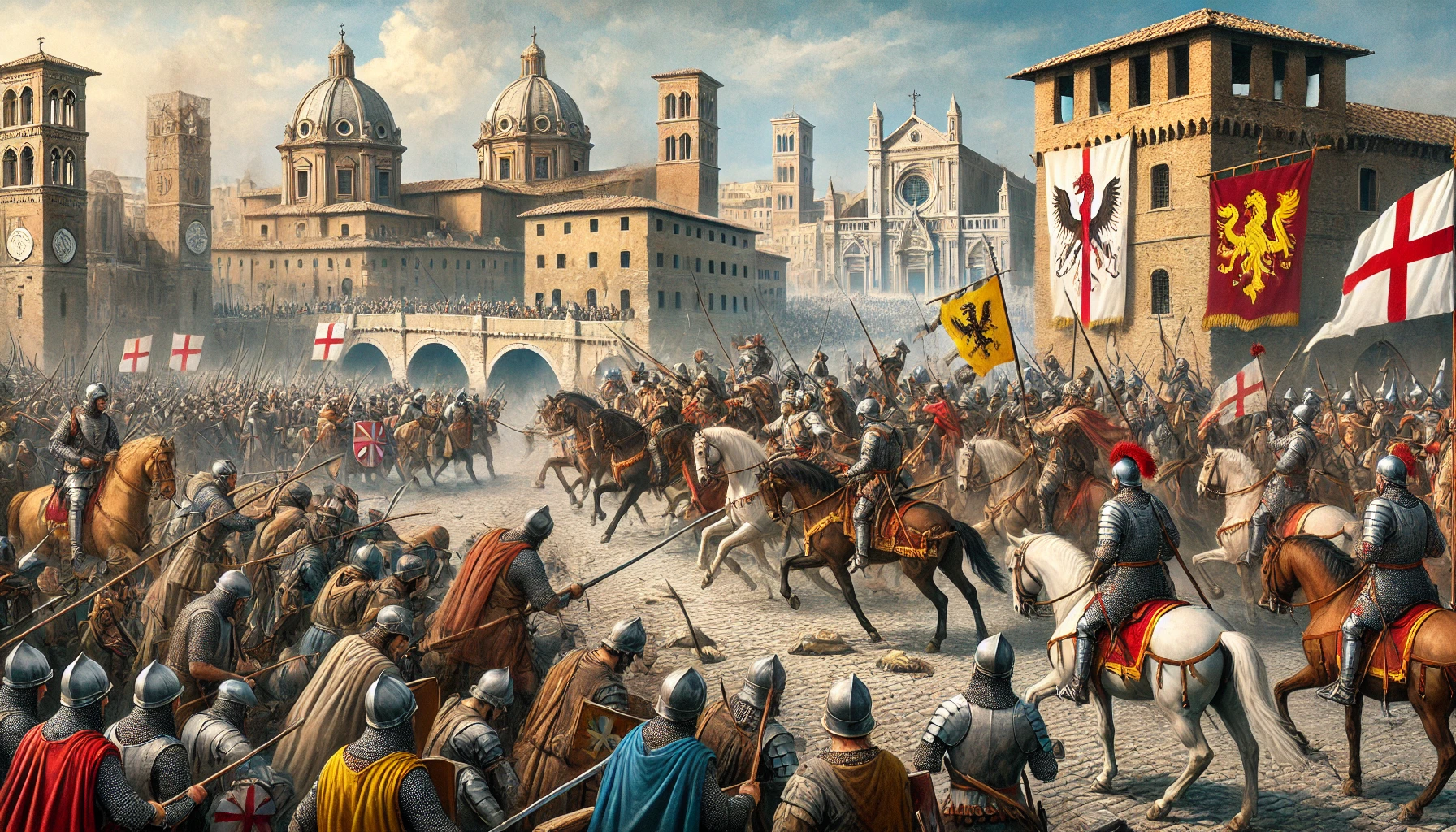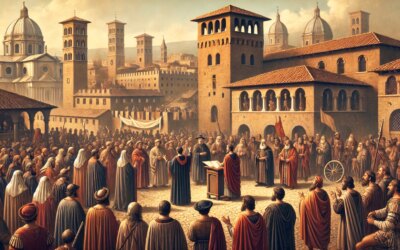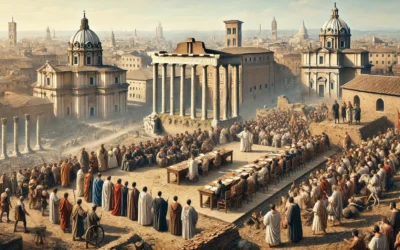Rome Caught in a Political War
During the 13th century, Italy was divided by the fierce rivalry between the Guelphs, who supported the papacy, and the Ghibellines, who backed the Holy Roman Empire. Rome, as the seat of the pope, became a key battleground in this conflict, with rival factions vying for control of the city.
The Origins of the Guelph-Ghibelline Divide
The struggle between the papacy and the empire had been brewing for centuries, but it intensified after Emperor Frederick II challenged papal authority. The Guelphs, loyal to the pope, sought to strengthen Rome as a religious and political power, while the Ghibellines aimed to assert imperial dominance over Italy.
Street Battles and Noble Feuds
Rome itself was divided, with powerful noble families aligning with either faction. The Colonna family often sided with the Ghibellines, while the Orsini supported the Guelphs. Clashes erupted in the streets, with armored knights battling under papal and imperial banners, turning the city into a war zone.
Papal Struggles and Imperial Resistance
Pope Innocent IV and later Boniface VIII led the Guelph effort, excommunicating emperors and rallying cities against imperial rule. However, the Ghibellines, under leaders like Frederick II, launched military campaigns to assert control over Rome and central Italy.
The Decline of the Conflict
By the late 13th century, the struggle between Guelphs and Ghibellines began to wane, particularly as the papacy moved to Avignon and imperial power weakened. Though the factions persisted in some regions, Rome saw a gradual stabilization as the papal state consolidated its rule.
Rome’s Enduring Political Divisions
The Guelph-Ghibelline rivalry left a lasting mark on Rome and Italy as a whole. It reshaped alliances, fortified noble families, and set the stage for the political maneuvering that would define the Renaissance. The echoes of this medieval power struggle continued to influence Italian politics for centuries.





